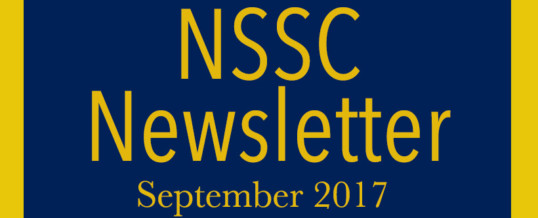Bethany Goldblum, the Scientific Director of NSSC, and Rian Bahran, the main NSSC Point of Contact at LANL participated in a panel discussion at the American Nuclear Society’s meeting in San Francisco. The topic of the panel was “Establishing and Advancing Nonproliferation and Nuclear Policy Education at U.S. Nuclear Science and Engineering Programs”. This panel was featured in the most recent edition of the ANS Newsletter.
Bahran discussed the collaboration between NSSC and LANL, “the goal is for Los Alamos to provide these universities with opportunities that they might not be able to have at their home institutions, [Bahran] said, including creating the science summer program, sending seminar speakers to university programs, performing collaborative research, and hosting students at the laboratory.” Bethany Goldblum elaborated on this collaboration, ” We partner [students] with national lab collaborators to work on something of relevance to nuclear security and nonproliferation, with the ultimate goal of transitioning these students to careers in the Department of Energy.”
The NSSC-LANL Keepin Nonproliferation Summer Science Program was highlighted ” the summer program allows students to have a full internship at LANL, and 80% of the time, work on real research with laboratory scientists in facilities to which they often to not have access.”
NSSC’s emphasis on nuclear security policy was also discussed during this panel, with mention of the Nuclear Security UCB Course, and the Nuclear Policy Working Group. Goldblum explained the NSSC’s approach to integrating policy studies with the understanding that nuclear security policy is multidisciplinary and requires input from a variety of sources, both technical and social sciences. ” In order to embrace this and have students be effective in this field, we need to put them in the same room. They need to speak to each other… and work together for a common goal.”
4
SEP
Share



